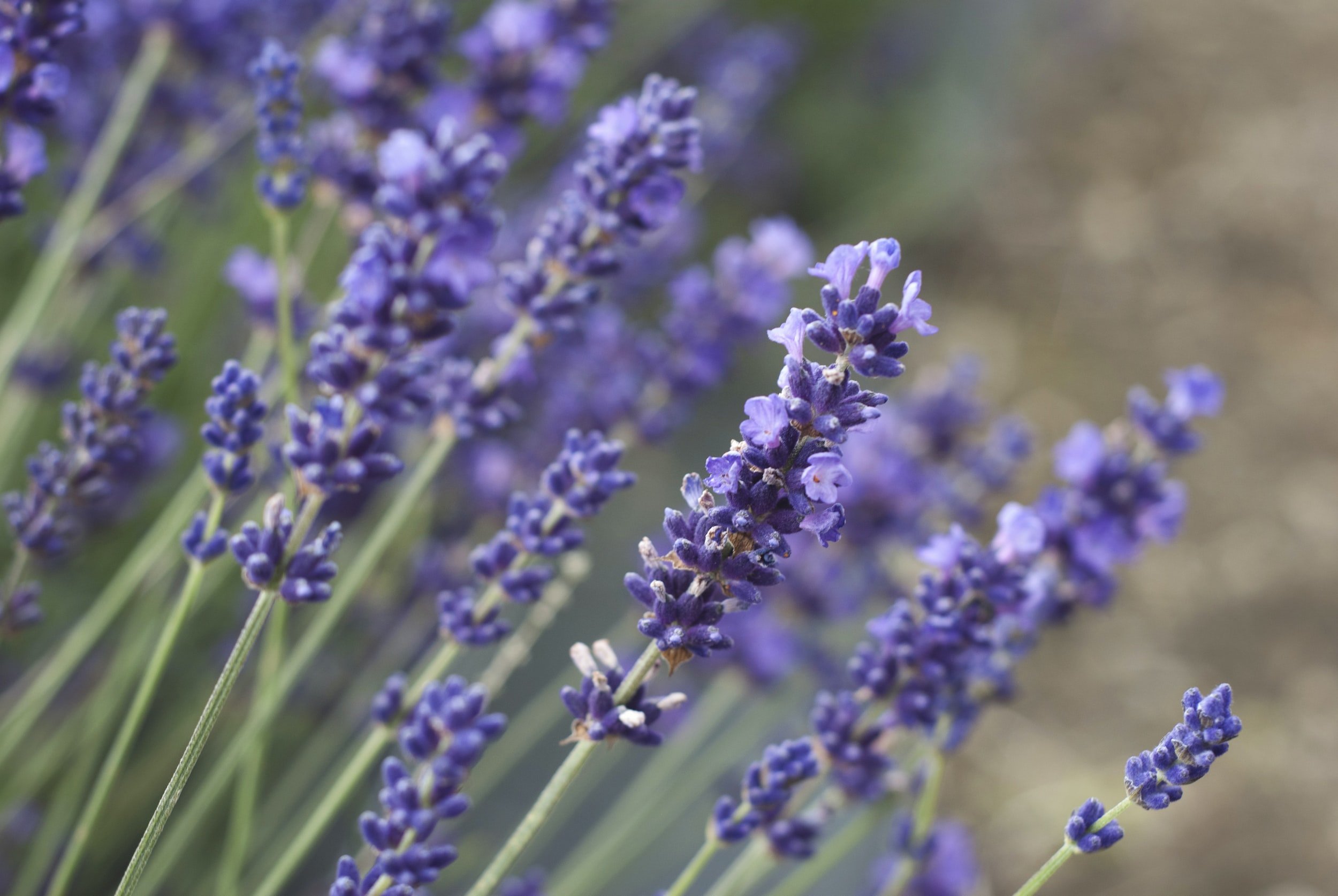How can aromatherapy help you sleep better
Sleep
Sleep is a crucial part of our daily lives and essential for physical and mental well-being. But what exactly is sleep, and what happens in our body and brain when we sleep?
What is sleep?
Sleep is a natural state of rest in which the body and brain are inactive. According to the National Sleep Foundation, sleep is a "period of reduced activity in the body and brain, characterized by decreased awareness of the environment."
It differs from losing consciousness because the body goes through various stages and cycles during sleep. According to Dr Matthew Walker, a sleep scientist and author of "Why We Sleep," sleep is "a behavioural state defined by characteristic patterns of brain activity."
During sleep, the body and brain go through several important processes. The brain becomes less active but still carries out vital functions such as consolidating memories and repairing tissues. The body also undergoes physical changes, such as decreased heart and breathing rates.
Cycles of Sleep
Sleep occurs in cycles that typically last around 90 minutes. These cycles have two main stages: non-rapid eye movement (NREM) and rapid eye movement (REM) sleep. During NREM sleep, the body is in deep relaxation and restoration. In contrast, during REM sleep, the brain becomes more active, and dreams occur.
Circadian rhythms are the body's natural 24-hour cycles regulating many physiological processes, including sleep and wake. These rhythms are driven by the body's internal clock, regulated by external cues such as light exposure and time of day. According to Dr Matthew Walker, a sleep scientist and author of "Why We Sleep," "Our internal biological clock is set by light, and to a lesser extent, dark." Light exposure in the morning helps to set the body's clock and promote wakefulness during the day, while darkness at night promotes sleepiness.
Melatonin and cortisol are two hormones that play a crucial role in regulating sleep and wake cycles. Melatonin is a hormone produced by the pineal gland in the brain that helps regulate the sleep-wake cycle. Cortisol is a hormone the adrenal glands produce associated with wakefulness and alertness. The levels of these hormones in the body are influenced by the body's internal clock and external cues such as light exposure.
To promote good sleep hygiene, Dr Andrew Huberman and Dr Matthew Walker recommend the following:
Consistency: A consistent sleep schedule, going to bed and waking up at the same time each day.
Exposure to natural light: Exposure to natural light during the day can help regulate the body's circadian rhythm, which is important for good sleep.
Avoidance of stimulants: Avoid stimulants such as caffeine and nicotine in the hours leading up to bedtime, as they can interfere with sleep.
Cool temperature: Keeping the bedroom cool and well-ventilated, between 60 and 67 degrees Fahrenheit, around 18 degrees Celsius.
Darkness: Having a dark sleep environment, avoiding screens and bright lights in the hours before bedtime.
Morning Light Exposure
Dr Andrew Huberman emphasizes the importance of light exposure in regulating circadian rhythms and promoting wakefulness during the day. He recommends exposure to natural daylight in the morning soon after waking up, even during overcast days and avoiding bright light in the evening, especially from electronic devices.
Scent and Aromatherapy: How can they help with sleep
Scent and aromatherapy have been used for centuries to promote relaxation, relieve stress, and improve sleep quality. The use of scents to enhance sleep is rooted in understanding how the brain processes smell and how it affects our physiology.
According to neuroscientist Dr Rachel Herz, "certain scents may have a direct effect on our nervous system and promote relaxation."
Research studies have shown that certain scents can promote relaxation and sleep by activating the parasympathetic nervous system, which is responsible for the body's rest-and-digest response.
What is World Sleep Day
It is an annual event celebrated on the third Friday of March, which falls on March 17th 2023. The purpose of this day is to raise awareness about the importance of getting enough sleep and to highlight the various issues related to sleep, including sleep disorders, the impact of sleep deprivation, and the benefits of good sleep habits.
The event was first organized by the World Sleep Society in 2008. Since then, it has been celebrated annually in over 100 countries worldwide. Each year, the event has a different theme, and various organizations and institutions worldwide hold events and activities to raise awareness about the importance of sleep.
The event also aims to promote evidence-based strategies for improving sleep quality, such as establishing a regular sleep routine, avoiding stimulants like caffeine and nicotine before bedtime, and creating a comfortable sleep environment.
Inhalation or diffusion of essential oils can be an effective way to promote relaxation and induce sleep. The olfactory system, which is responsible for our sense of smell, is closely connected to the limbic system in the brain, which is responsible for emotions, memories, and behaviour. This connection allows for essential oils to have a direct impact on our moods and emotions.
Studies have found that lavender and chamomile essential oils have sedative properties and can reduce stress and anxiety, resulting in better sleep quality. One study published in the Journal of Alternative and Complementary Medicine observed that lavender essential oil increased deep sleep and improved sleep quality in healthy individuals. Another study in the Journal of Advanced Nursing concluded that inhaling lavender essential oil improved sleep quality in hospital patients, suggesting its potential as a safe and effective treatment for sleep disturbances.
Neuroscientist and sleep expert Matthew Walker explains in his book "Why We Sleep" that "the scent of lavender has been shown to decrease heart rate and blood pressure, potentially putting you in a more relaxed state. That state may make it easier for you to drift off to sleep." He further emphasizes the importance of a relaxing sleep environment, including calming scents like lavender, to promote quality sleep.
Aromatherapy can help you sleep better.
Aromatherapy plays a crucial role in creating an environment that fosters better circadian rhythms, which regulate sleep-wake patterns and hormone secretion. By using scents that promote relaxation and calmness, the body can be triggered into rest and prepare for sleep. Inhaling or diffusing essential oils can be a natural and effective way to promote relaxation, reduce stress, and improve sleep quality. By calming the central nervous system and lowering stress levels, essential oils can help create a more restful sleep environment and foster better circadian rhythms.
Dr Rubin Naiman, a sleep and dream specialist and clinical assistant professor of medicine at the University of Arizona, explains that "aromatherapy can be a powerful tool in helping people to achieve deeper, more restorative sleep by reducing stress, promoting relaxation, and enhancing the natural sleep process." He adds that "aromatherapy can help to create a calming sleep environment, which can lead to better sleep quality and duration."
Dr Andrew Huberman, a neuroscientist and professor of neurobiology at Stanford University, also acknowledges the potential benefits of aromatherapy in improving sleep quality. In a podcast episode on sleep hygiene, he stated, "There is some evidence that certain scents, particularly lavender and vanilla, can help people sleep better."
Incorporating aromatherapy products with breathing exercises
Breathing exercises can be a helpful tool in promoting relaxation and better sleep. One simple exercise is to inhale deeply for four counts, hold the breath for seven counts, and exhale slowly for eight counts. This technique, known as the 4-7-8 breathing method, is recommended by sleep experts like Dr Andrew Weil.
Yatlina Aromatherapy offers.
Incorporating aromatherapy into your breathing exercises can further enhance their effectiveness. Yatlina Aromatherapy's Rest Blend is a perfect addition to your relaxation and breathing routine. The blend consists of high-latitude lavender, roman chamomile, and Egyptian sweet marjoram, all of which have research backing their potential to promote relaxation and calmness.
Yatlina Rest Blend
Rest blend consists of high-latitude lavender, roman chamomile, and Egyptian sweet marjoram, all of which have research backing their potential to promote relaxation and calmness.
How to use the Rest Blend
Blended Drops: A pure form of essential oils, available in 2ml bottles and 10ml bottles available soon. Add a few drops of the blend to your personal inhaler or apply it to the inhalation patch and inhale deeply during your breathing exercises. It can also be added to your chosen diffuser following the manufacturer's instructions.
Personal Inhaler: Add 10-20 drops to the cotton wick.
Aroma Inhalation Patch: Add 1-2 drops to the unscented patch or use the pre-scented "Rest" blend immediately.
Diffuser: Following the manufacturer's instructions, use the 10ml bottle directly in your ultra nebuliser or add 1-20 drops to the water reservoir for the ultrasonic and traditional diffusers.
Body oil: If using the yatlina Botanical infused oils in 50ml bottles, consider adding 10-12 drops for a 3% dilution safe for most as an all-over body oil.
An interview I did with “Authority” magazine about aromatherapy and sleep.
If you have further questions, please reach out through email or direct message me on social media @yatlina
References and further reading
These references explore the effects of different essential oils on sleep quality and relaxation and the mechanisms by which aromatherapy may improve sleep.
Sayorwan, W., Siripornpanich, V., Piriyapunyporn, T., Hongratanaworakit, T., Kotchabhakdi, N., & Ruangrungsi, N. (2013). The effects of lavender oil inhalation on emotional states, autonomic nervous system, and brain electrical activity. Journal of the Medical Association of Thailand, 96(4), 1-9.
Goel, N., Kim, H., & Lao, R. P. (2005). An olfactory stimulus modifies nighttime sleep in young men and women. Chronobiology International, 22(5), 889-904.
Koulivand, P. H., Khaleghi Ghadiri, M., & Gorji, A. (2013). Lavender and the nervous system. Evidence-Based Complementary and Alternative Medicine, 2013.
Hwang, E., Shin, S., & Kim, H. (2016). The effects of aromatherapy on sleep improvement: A systematic literature review and meta-analysis. Journal of Korean Academy of Nursing, 46(6), 769-782.
Hongratanaworakit, T., & Buchbauer, G. (2006). Relaxing effect of ylang-ylang oil on humans after transdermal absorption. Phytotherapy Research, 20(9), 758-763.
Lewith, G. T., Godfrey, A. D., Prescott, P., & MacPherson, H. (2005). A single-blinded, randomized pilot study evaluating the aroma of Lavandula augustifolia as a treatment for mild insomnia. Journal of Alternative and Complementary Medicine, 11(4), 631-637.











